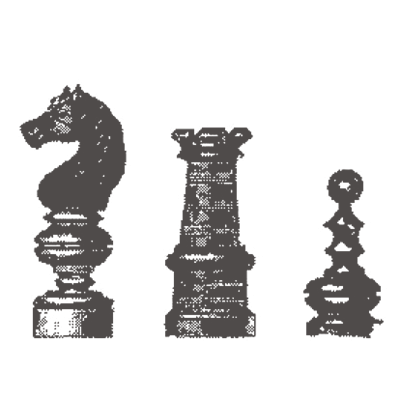Can a jingle be a trademark?
A melody lasts two seconds and contains four tones. Is that enough to register it as a trademark? The EU’s General Court recently took another look at the distinctiveness of sound trademarks.

A new association for Koniaków lacemakers? EU protection of geographical indications for craft and industrial products
In November we were feasting on St Martin’s croissants, and soon we will take out our Christmas place settings—perhaps from the ceramics manufacturers in Bolesławiec, Ćmielów or Chodzież. Currently only one of these famed Polish products—the poppyseed-filled rolls from Poznań—is covered by the EU’s system for protection of geographical indications. But will the portfolio of EU-protected Polish geographical indications soon expand greatly? This became possible at the beginning of December 2025.

Trade in counterfeit goods: Sanctions facing perpetrators, and the rights of injured trademark holders
Trading in counterfeit goods is not just an economic problem, but is first and foremost a crime that victimises honest businesses, undermining principles of fair competition and trust of consumers built up over years. It is important to be aware of the consequences facing perpetrators of these offences, and how an injured company can effectively protect its brand.

Artwork restitution act: A necessary but insufficient solution
The Polish parliament passed the Act on Restitution of National Cultural Goods eight years ago, but the public is hardly aware of it. Nor is much known about how the act functions in practice. Nonetheless, the restitution of artworks remains a lively topic

Third-party use of a trademark in a prize draw: Permissible use or infringement?
Can a renowned trademark be used to encourage participation in a contest? Is displaying someone else’s trademark as a promotional prize merely informational, or is it trademark infringement? The Court of Justice addressed this issue in its judgment of 11 January 2024 in C-361/22, Inditex. The case involved a promotional campaign in the form of a contest, where the prize was a gift card from a well-known fashion brand. The promoter used the brand’s logo in a depiction of the card without the proprietor’s permission.

What does olive oil have to do with wine? When a trademark containing a geographical indication can be registered
A Portuguese company filed for trademark registration by the EUIPO of the word sign “Quevedo Port” for two products: olive oil and wine. Registration was opposed by an association of makers of Port wine, which is a protected denomination of origin. Nonetheless, the EUIPO properly registered the disputed mark. Why?

Changes in the EU system for protection of geographical indications
So far, geographical indications have been primarily relevant to just a few countries, such as Italy and France. But recent changes at the EU level are opening up interesting prospects for Polish producers as well. Below we write more about what geographical indications are, how the protection system has recently changed, and who stands to benefit from these changes.

Influencer marketing under control: A good contract is the key to success
Influencer marketing is one of the fastest-growing promotional channels. It allows marketers to reach a wide group of recipients. According to a report from Influencer MarketingHub, the global value of influencer marketing topped USD 21 billion in 2023, and was expected to reach USD 24 billion in 2024. The success of a campaign does not depend solely on choosing the right influencer. A key element is a carefully prepared contract adequately protecting the interests of the parties and ensuring proper implementation of the objectives of the campaign.

The Artificial Intelligence Act and new obligations for developers and users of AI
The Artificial Intelligence Act (Regulation (EU) 2024/1689) entered into force on 2 August 2024. In most respects the regulation will apply from 2 August 2026. The AI Act also includes grace periods enabling entities covered by the regulation to adapt to their new obligations.

Content harmful to minors: Fines imposed by the National Broadcasting Council
The number of decisions by the chairman of Poland’s National Broadcasting Council imposing fines on media service providers for broadcast violations has risen dramatically over the last five years. These decisions involve content standards (respect for law, public order, morality, religious beliefs), protection of minors, and improper language. In 2011–2018, an average of three decisions imposing fines on providers were issued per year. Between 2019 and 2023, this figure leapt fourfold, to an average of 12 per year, and in 2023 there were more than 20. Fines for content harmful to minors are particularly noteworthy for their frequency and problematic nature.

Will it be harder to obtain interim relief in intellectual property cases from July 2023?
New rules for interim relief in intellectual property cases in Poland entered into force on 1 July 2023. The changes are designed to address practical problems of businesses and eliminate earlier abuses of interim relief. But the amendment raises doubts and seems to heighten the procedural formalism.

Intellectual property: Changes in interim injunction and enforcement proceedings
Soon, another major amendment to the Polish Civil Procedure Code will enter into force, particularly affecting holders of intellectual property rights. The amendment will change the existing rules on interim injunction proceedings, which are typically used in intellectual property cases prior to filing a statement of claim. These changes will come into effect on 1 July 2023. Significant changes have also been made in the provisions on judicial enforcement, already in force since 15 April 2023.
